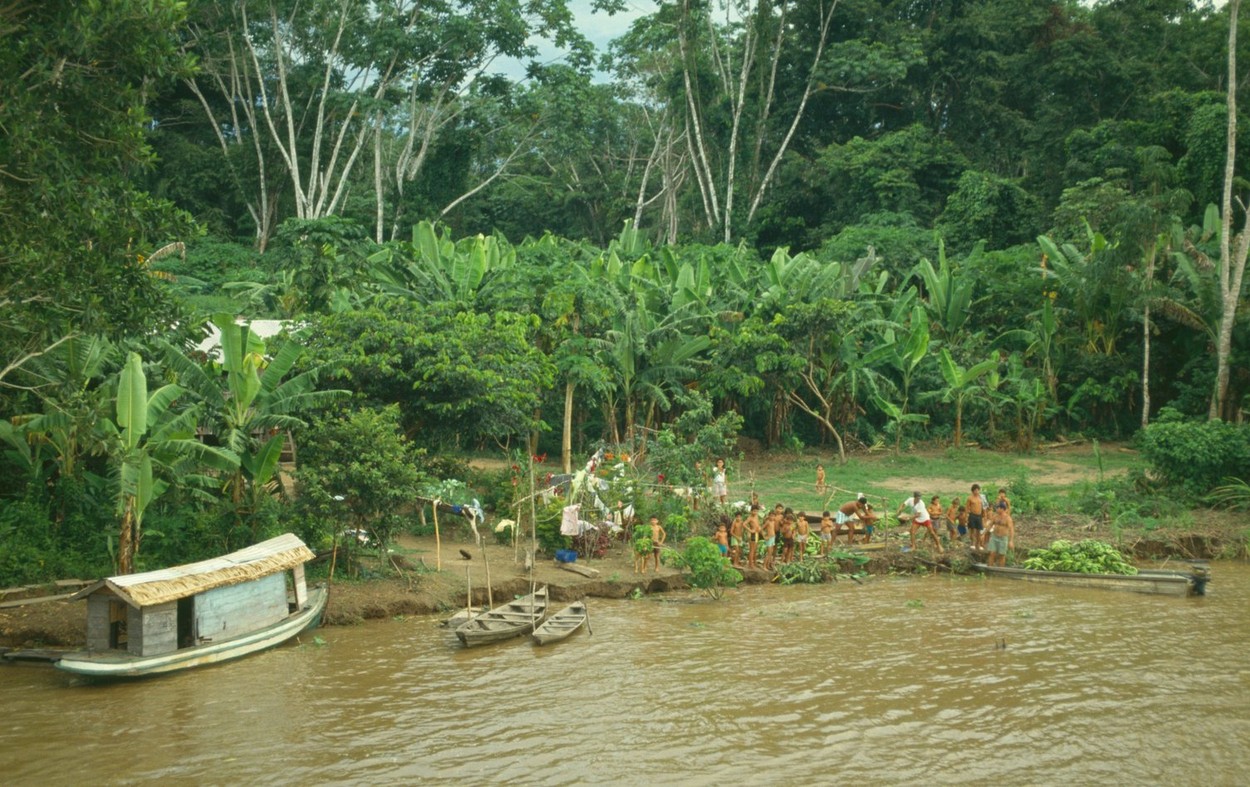The Fight To Protect Indigenous Data And Culture: The Role Of Indigenous Scientists

Table of Contents
The Threat to Indigenous Knowledge and Data
The vulnerability of Indigenous knowledge and data stems from a long history of exploitation and power imbalances. This ongoing threat demands immediate and decisive action.
Unauthorized Access and Misappropriation
For centuries, Indigenous knowledge has been plundered, often without consent or compensation. This historical injustice continues today. Corporations and researchers alike often exploit Indigenous knowledge for profit or academic gain, misrepresenting its origins and failing to acknowledge the intellectual property rights of Indigenous communities.
- Examples of historical exploitation: The appropriation of traditional medicines without proper attribution; the patenting of Indigenous-developed technologies.
- Current challenges: Biopiracy, the unauthorized use of genetic resources; data mining from Indigenous communities without informed consent.
- Ethical implications: The violation of Indigenous rights, the erosion of cultural trust, the perpetuation of systemic inequalities.
- Commercialization of Indigenous knowledge: The commodification of traditional practices and knowledge systems for profit, often without benefit to the communities involved.
Loss of Cultural Heritage and Traditional Practices
The loss of control over data translates directly into the erosion of cultural heritage and the weakening of traditional practices. This is not just about data; it’s about the very fabric of Indigenous societies.
- Impact on cultural transmission: The inability to pass down traditional ecological knowledge, healing practices, and storytelling traditions to future generations.
- Impact on spiritual practices: The disruption of sacred ceremonies and rituals tied to specific locations or data sets.
- Impact on community identity: The loss of connection to ancestral lands, cultural practices, and a sense of belonging.
- Relevant case studies: Research into the impact of data breaches on Indigenous communities, demonstrating the tangible consequences of data insecurity.
The Power Dynamics at Play
The relationship between Indigenous communities and external researchers is often characterized by significant power imbalances, rooted in colonialism and neo-colonialism.
- Colonialism and neo-colonialism: The continuation of historical power structures that disadvantage Indigenous communities.
- Informed consent: The critical need for free, prior, and informed consent (FPIC) in all research involving Indigenous communities.
- Equitable partnerships: The necessity of developing research partnerships that prioritize Indigenous self-determination and benefit sharing.
The Role of Indigenous Scientists in Protecting Indigenous Data
Indigenous scientists are at the forefront of the fight for Indigenous data sovereignty. Their expertise is not merely scientific; it's deeply rooted in cultural understanding and community engagement.
Developing Indigenous Research Methodologies
Community-Based Participatory Research (CBPR) and other Indigenous-led methodologies prioritize community ownership and control over data and research processes.
- Examples of successful Indigenous research methodologies: Ethnographic research, oral history projects, participatory mapping initiatives.
- Benefits of community participation: Ensuring research relevance, promoting community ownership, fostering trust and collaboration.
- Ethical considerations specific to Indigenous research: Respecting cultural protocols, protecting sensitive information, prioritizing community benefit.
Data Sovereignty and Self-Determination
Data sovereignty is the right of Indigenous peoples to govern the collection, ownership, and application of their data. Indigenous scientists are key to achieving this.
- Definition of data sovereignty: Control over the collection, storage, use, and sharing of Indigenous data.
- Relationship to self-determination: Data sovereignty as a crucial component of Indigenous self-determination and the exercise of Indigenous rights.
- Practical steps: Developing community-owned data governance frameworks, establishing Indigenous data repositories, training community members in data management.
Capacity Building and Education
Investing in Indigenous education and training programs is essential for cultivating future generations of Indigenous scientists and data stewards.
- Successful programs: Examples of successful Indigenous science and technology programs.
- Areas needing improvement: Addressing the systemic underrepresentation of Indigenous peoples in STEM fields.
- Importance of mentorship: The role of mentorship and intergenerational knowledge transfer in building Indigenous scientific capacity.
Building Partnerships and Collaboration for Effective Protection
Effective protection of Indigenous data requires collaboration, advocacy, and the strategic use of technology.
Collaboration with External Researchers
Ethical collaborations between Indigenous communities and external researchers are crucial, respecting Indigenous knowledge systems and data sovereignty.
- Guidelines for ethical research partnerships: Establishing clear protocols for data access, ownership, and benefit-sharing.
- Examples of successful collaborations: Case studies of successful partnerships that prioritize Indigenous leadership and community benefits.
- Importance of open communication and mutual respect: Building trust and transparency between Indigenous communities and researchers.
Advocacy and Policy Changes
Advocacy and policy changes at local, national, and international levels are essential for protecting Indigenous data.
- Successful advocacy campaigns: Examples of successful campaigns that have resulted in policy changes protecting Indigenous knowledge.
- Policy recommendations: Recommendations for legislation and policies that support Indigenous data sovereignty.
- Importance of international collaboration and support: The role of international organizations and agreements in protecting Indigenous rights.
Technological Solutions for Data Security
Technology can play a significant role in securing Indigenous data and knowledge, particularly when it's Indigenous-led.
- Digital tools and platforms: Examples of secure data storage and management platforms developed specifically for Indigenous communities.
- Importance of digital literacy: The need to equip Indigenous communities with the digital literacy skills needed to manage their data effectively.
- Indigenous-led solutions: Prioritizing Indigenous-led technological solutions to ensure cultural relevance and community control.
Conclusion
The fight for Indigenous data sovereignty is a fight for cultural survival. The unauthorized access and misappropriation of Indigenous knowledge represent a profound ethical and cultural violation. Indigenous scientists play a crucial role in protecting this invaluable heritage through the development of Indigenous research methodologies, advocacy for data sovereignty, and capacity building within their communities. We must support Indigenous data sovereignty efforts, learn more about the critical role of Indigenous scientists, and champion Indigenous knowledge. By working together, we can ensure that Indigenous data is protected, preserved, and used responsibly for the benefit of Indigenous communities and the world. Support Indigenous data sovereignty initiatives and help us protect this invaluable heritage for future generations.

Featured Posts
-
 Model Merman O Razryve S Synom Kadyshevoy I Zhizni V Oae Posle Rasstavaniya
May 13, 2025
Model Merman O Razryve S Synom Kadyshevoy I Zhizni V Oae Posle Rasstavaniya
May 13, 2025 -
 Data Breach Exposes Millions Executive Office365 Accounts Targeted
May 13, 2025
Data Breach Exposes Millions Executive Office365 Accounts Targeted
May 13, 2025 -
 Lucid Software Acquires Airfocus A Strategic Move For Enhanced Collaboration
May 13, 2025
Lucid Software Acquires Airfocus A Strategic Move For Enhanced Collaboration
May 13, 2025 -
 Kemenangan Tipis Fiorentina Atas Atalanta Kean Cetak Gol Penentu
May 13, 2025
Kemenangan Tipis Fiorentina Atas Atalanta Kean Cetak Gol Penentu
May 13, 2025 -
 The Unending Nightmare Gaza Hostage Situation And Its Impact On Families
May 13, 2025
The Unending Nightmare Gaza Hostage Situation And Its Impact On Families
May 13, 2025
